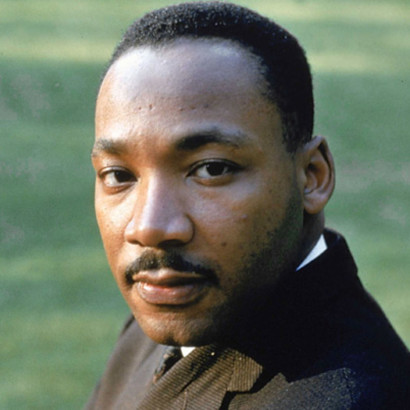First, We Are Human
Today I along with many others spent some of the day thinking about the life and legacy of Dr. Martin Luther King, Jr.
In recent years, despite a lot of lip service about tolerance and diversity, racism still exists, and so does the tendency to place group identity ahead of individuality when it comes to interpersonal relations (Could that be in part because identity politics can at times divide rather than unite people?)
I was pleased to hear President Barack Obama end his State of the Union speech the other night by referencing Dr. King in the context of the duties and responsibilities of citizenship:
“Our brand of democracy is hard. But I can promise that a little over a year from now, when I no longer hold this office, I will be right there with you as a citizen, inspired by those voices of fairness and vision, of grit and good humor and kindness that helped America travel so far. Voices that help us see ourselves not, first and foremost, as black or white, or Asian or Latino, not as gay or straight, immigrant or native born, not as Democrat or Republican, but as Americans first, bound by a common creed. Voices Dr. King believed would have the final word — voices of unarmed truth and unconditional love.”
To see ourselves as not, first and foremost, black or white, Jewish or Christian or Muslim or whatever other religion we are, as male or female, as straight or gay, but as American – it seems to me this idea has gotten short shrift in our age of identity politics. So has the idea of being proud to be American. Often mocked and dismissed as jingoistic on college campuses and in media, to be an American was the proud dream of our forbears and the glue that united them and enabled them to win two world wars and literally to save the world as we know it. That unity was powerful stuff.
Understandably, for many African-Americans, patriotism and pro-American feelings may be more complicated. But I was proud to hear our first African-American President speak the other night about the value of being an American, “bound by a common creed.” Though I have disagreed with many of his decisions and frankly would have liked to have seen him draw more on that philosophical mindset – of unity, not division – throughout his Presidency, I was pleased to hear him honor Dr. King in his final SOTU. Dr. King was truly a leader for all Americans, whom only the most depraved character could fail to respect. His legacy unifies us.
In college during the 1990’s at the University of Washington, I went one night to hear an honored guest – Rosa Parks – speak on campus. I recall that a student in the audience asked her for advice about how, as a minority, she should respond to something. Ms. Parks’s response was (here I paraphrase): “Maybe if you spent less time concerned with how to respond as a this-or-that and more time on how to respond as a human being, we would all be better off.”
Of course, it’s easy to say and harder to put into practice, and group identity – religious, cultural, racial – can be strengthening, helping enrich and particularize us as individuals.
As a Zionist, for instance, I believe in a secure homeland for the Jewish people, and in the continuity of the Jews as a unique people. But I believe it is also at least equally important to remember we are human beings first, bound to other human beings by our common humanity. That doesn’t mean we can’t enjoy our families and extended families (which is, in a sense, what religious, racial, and cultural groups are) or that we can’t feel special bonds with those most like us in certain ways, those with whom we have a common story. But there is real danger in allowing group identity to trump all other values, or in becoming unable to transcend group identity. With his transcendent spirit, Dr. King reminded us of this great truth.
That said, there is also danger in failing to recognize that group identity is part of being human.
As a Jew and a Zionist, I’m especially appreciative of Dr. King’s support for the Jewish State. I wrote about this several years ago for The Huffington Post. With his peerless eloquence and high moral character, Dr. King not only supported Israel, he also identified and responded to anti-Semitism in its modern incarnation, anti-Zionism, which continues to proliferate, particularly in the Arab world and on the hard left, today.
I honor the memory of Dr. Martin Luther King with love, gratitude, and deep respect. How good it is to know that such a man lived among us in this imperfect world.
This entry was written by Heather Robinson and posted on January 19, 2016 at 12:16 am and filed under Blog. permalink. Follow any comments here with the RSS feed for this post. Keywords: Barack Obama, Dr. Martin Luther King, Jr., MLK and Zionism, Rosa Parks. Post a comment or leave a trackback: Trackback URL. */?>




